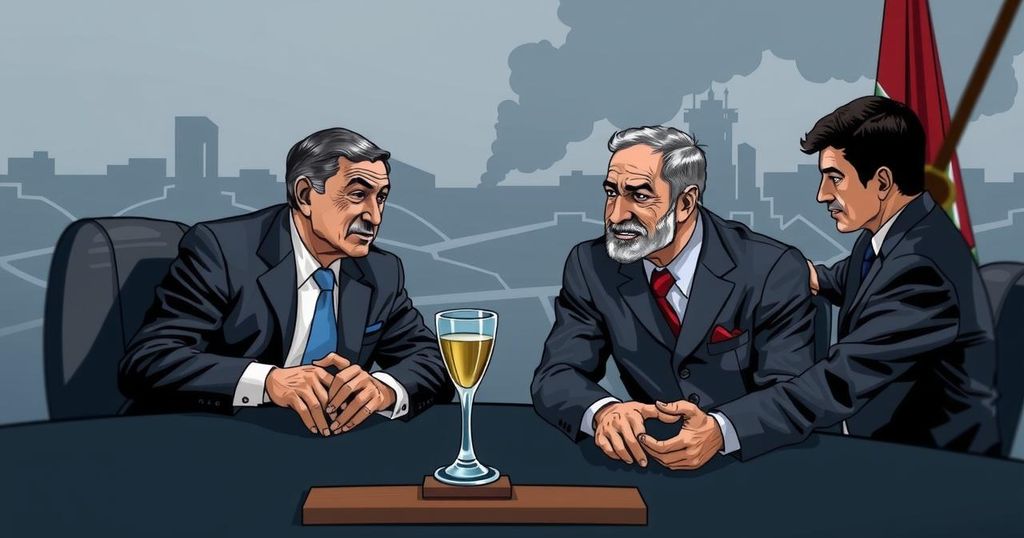Rekindling Peace Talks Amidst Escalating Violence in the Middle East

U.S. officials are seeking to rejuvenate peace negotiations in the Middle East amidst ongoing conflict between Israel and its adversaries. Recent satellite imagery has revealed substantial destruction in southern Lebanon due to military operations. Civilian displacement stories illustrate the humanitarian impact of the violence, underscoring the urgency for renewed diplomacy and aid.
U.S. officials are actively working to revitalize peace negotiations in the Middle East, amidst ongoing military confrontations between Israel and its adversaries. As aerial assaults and ground combat persist, Israel has reported extensive damage in southern Lebanon. According to a recently conducted analysis by The Washington Post, satellite imagery has revealed that nearly 25% of buildings in 25 municipalities near the Israeli border have either been damaged or completely destroyed since the onset of escalated hostilities. This destruction is predominantly attributable to the militarized conflict that escalated sharply following Israel’s ground invasion on October 2, with reports indicating that the rate of destruction has approximately doubled every two weeks since that date. The analysis, underpinned by satellite radar data, also noted the visible devastation from airstrikes and ground battles, including a series of controlled demolitions executed by the Israeli military, which have also impacted religious sites. In a striking report from Deir Al-Ahmar, the impact of the conflict is palpably felt among the displaced citizens watching destruction unfold in nearby Baalbek. A mother, Zahra Younes, described the terror experienced by her children during the bombardments, illuminating the broad humanitarian consequences of ongoing military actions. The situation in this region is dire, with significant displacement prompting a humanitarian crisis. The original conflicts that have erupted along the Israel-Lebanon border have a long history, exacerbated by ongoing tensions involving Hezbollah.
The situation in the Middle East, particularly between Israel and its adversaries, remains precarious and fluid, with military engagements frequently leading to civilian displacement and destruction. The ongoing conflict has roots in complex historical grievances, territorial disputes, and political animosities. In recent years, the resurgence of hostilities has prompted international efforts to mediate peace negotiations, yet these endeavors are often undermined by renewed violence on the ground. Recent analyses highlight the devastating impacts of military operations on infrastructure and civilian life, further complicating efforts toward resolution and humanitarian aid.
In summary, the efforts of U.S. officials to revive peace discussions are overshadowed by the escalated violence between Israel and factions in Lebanon. The reported destruction of buildings in southern Lebanon highlights the dire humanitarian implications of the ongoing conflict, and the experiences of displaced citizens, as narrated through personal testimonies, poignantly reflect the human cost of warfare. The urgent need for diplomatic intervention and comprehensive humanitarian support remains paramount as the region teeters on the brink of further escalation.
Original Source: www.washingtonpost.com








